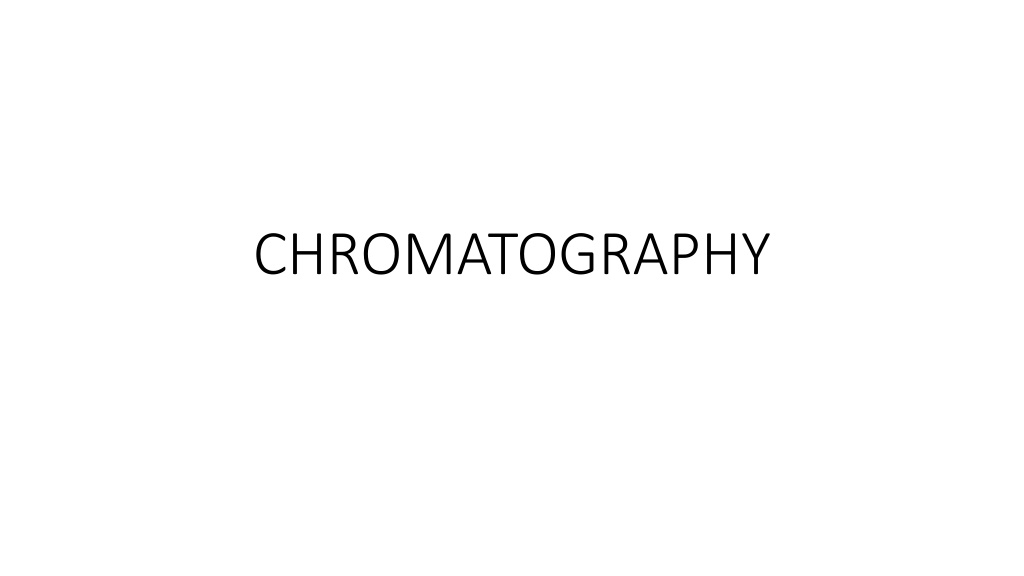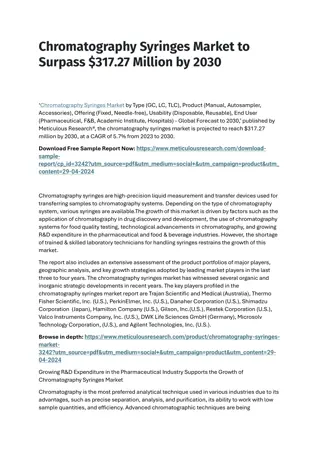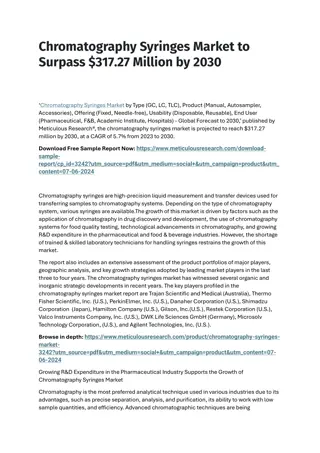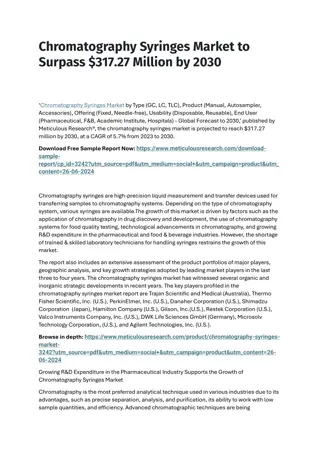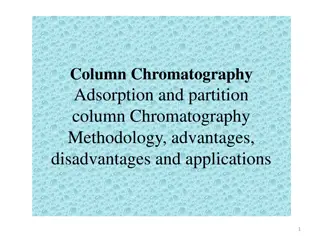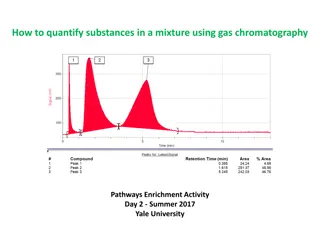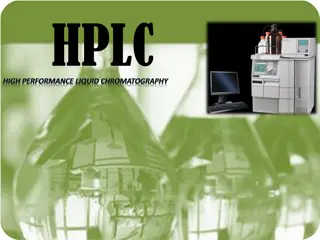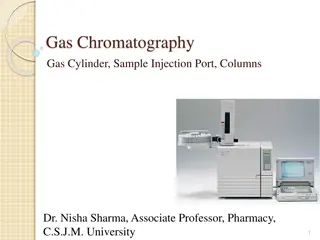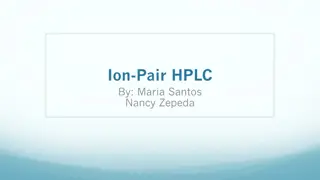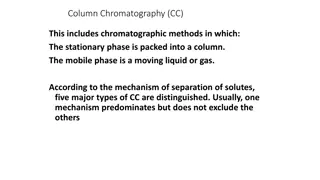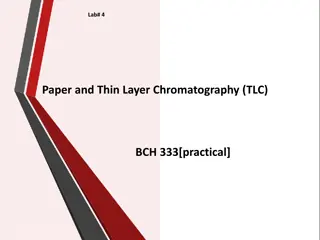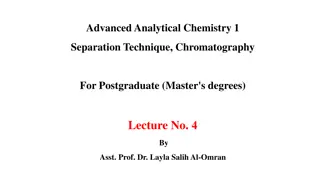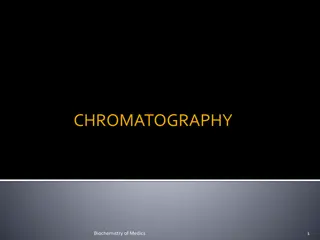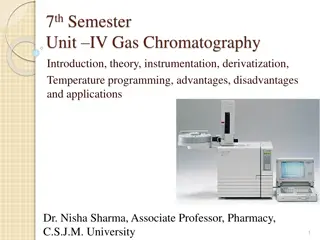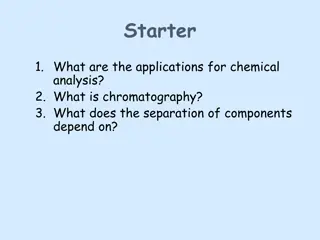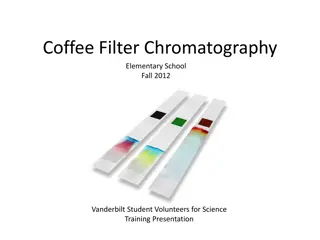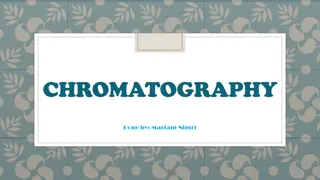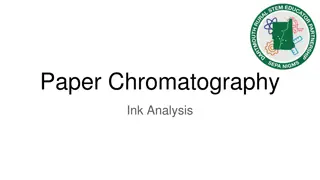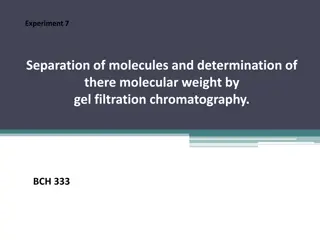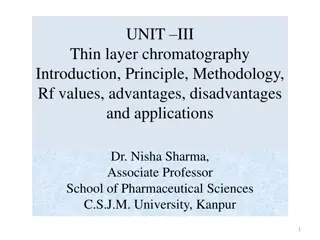Overview of Chromatography Techniques and Applications
Chromatography is a powerful separation technique that involves a mobile phase passing through a stationary phase to separate components in a mixture. Various types of chromatography like column, TLC, paper, and gas chromatography are commonly used for analysis in scientific research and industries. Paper chromatography, a significant method, utilizes paper as the stationary phase and a liquid solvent as the mobile phase for efficient separation of components based on their differential migration rates.
Download Presentation

Please find below an Image/Link to download the presentation.
The content on the website is provided AS IS for your information and personal use only. It may not be sold, licensed, or shared on other websites without obtaining consent from the author.If you encounter any issues during the download, it is possible that the publisher has removed the file from their server.
You are allowed to download the files provided on this website for personal or commercial use, subject to the condition that they are used lawfully. All files are the property of their respective owners.
The content on the website is provided AS IS for your information and personal use only. It may not be sold, licensed, or shared on other websites without obtaining consent from the author.
E N D
Presentation Transcript
Chromatography: Chromatography is a separation technique used to separate the different components in a liquid mixture. It was introduced by a Tswett. Chromatography involves the sample being dissolved in a particular solvent called mobile phase. The mobile phase may be a gas or liquid. The mobile phase is then passed through another phase called stationary phase. The stationary phase may be a solid packed in a glass plate or a piece of chromatography paper. Russian Scientist Michael
The various components of the mixture travel at different speeds, causing them to separate. There are different types of chromatographic techniques such as column chromatography, TLC, paper chromatography, and gas chromatography.
Paper chromatography is one of the important chromatographic methods. Paper chromatography uses paper as the stationary phase and a liquid solvent as the mobile phase. In paper chromatography, the sample is placed on a spot on the paper and the paper is carefully dipped into a solvent. The solvent rises up the paper due to capillary action and the components of the mixture rise up at different rates and thus are separated from one another.
